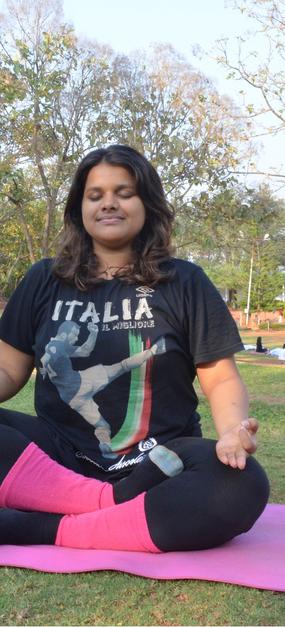Some sights stay frozen in memories – like a vintage photograph, greying and curling along the edges. The colours might have gotten dimmer. However, the image remains untouched by time.
Who knew that one such memory that most of us would have of our grandparents would be invariably related to intermittent fasting benefits? We would have observed that their dinner finished before the clock would chime at 7 pm. After that, they would only consume water until the following day.Recently, unexpected conversations and trends led us to a discussion revolving around intermittent fasting & its benefits, which is being introduced as a promising route to healthy living.
What is intermittent fasting? An old concept or a new trend?
Wondering what intermittent fasting is? Intermittent fasting is different from the ayurvedic or naturopathy fasting guidelines. Like all lifestyle changes, intermittent fasting rules require commitment, discipline, and patience. Moreover, there are different ways to practice intermittent fasting—the 16:8 principle, alternate days, or even for 24 hours. Find out which fasting plans suit your body and lifestyle.
So, how does intermittent fasting work? The rules are pretty simple.
- Fast for 14-16 hours, then eat within 8 hours: So, if you’re eating dinner by 8 pm, your next meal will be around noon or 2 pm the next day.
- Drink lots of water!
- Eat everything, but avoid bingeing: During the 8-hour eating window, the intermittent fasting plans allow you to consume food high in nutritional value. However, it’s best to eat your regular quantity and avoid fried and sugar-rich food.
Our ancestors were wise and meticulous. They found different ways to incorporate healthy living into our customs. As a result, our bodies are exhausted and overstressed by unhealthy or untimely eating. The idea of fasting is to heal, repair, and detoxify the system, giving your overworked body some loving care. Hence, following such customs in today’s world is even more important.
For example, Jains follow the tradition of chuviyar or abstinence from food after sunset. Islam talks about dry and intermittent fasting during Ramzan. Hindus observe a liquid fast during Shivratri. Vaishnavs consume fruits and liquids every Ekadashi (the 11th day of the waxing and waning lunar cycles).
The importance of being moderate
While intermittent fasting can have several health benefits, it’s important to be moderate to avoid potential adverse effects on your physical and mental health. As someone keen to stay fit and alert, avoid food that is unhealthy or not suited to your system.
What is the primary benefit of fasting for 16 hours?
The 16-hour fast benefits our body’s fuel. Our bodies use at least 75 per cent of our energy to digest food, meaning we have only about 25 per cent for other activities. So the question is- Is intermittent fasting good? When we fast, our body has more power to detoxify itself.
The intestines use this time to process the toxins floating around and digest them well. Once that happens, the body is lighter and more robust. There is a spike in the growth hormone and a decrease in insulin.
It is found that one of the intermittent fasting benefits is the incredible increase in the human growth hormone (which usually decreases with age). The growth hormone is essential for brain function, building lean muscle, healing, and cellular longevity in adults. It also facilitates the regeneration of new immune system cells that boosts immunity and helps in longevity.
According to Dr Ganesh Puttur from the Sri Sri College of Ayurvedic Science and Research, “Fasting will help to get rid of ama. Ama refers to toxins that are the root cause of most diseases. Even if a person consumes food with the utmost care, there are chances that ama (undigested food) will be produced. Fasting helps the digestive system digest or get rid of this ama.”
There are several other benefits to fasting for 16 hours:
- Better sleep
- Reduces inflammation
- It gets rid of toxins
- More mental alertness
- Better digestion, reduced bloating
- Weight loss
Have you observed what happens when you’re unwell with a fever? You don’t feel like eating. The body is saying, “My systems are under stress. I just want to slow down and rest. No overload of food, please.” Dr Raghavi, a Naturopathy Consultant at the Sri Sri Ayurveda Hospital, says, “If you’re unwell, just try fasting for a day. Have water or lemon water every two hours and rest. You might find yourself feeling fine the next day!”
Different strokes for different folks
The 16-hour fast benefits are universal and diverse, making different schools view intermittent fasting plans through their unique lens. Yet, one opinion holds in every discipline: fasting is good for the human body.
According to Ayurveda, people comprise different prakrutis (constitutions) – Vata, Pitta, and Kapha. Therefore, people can choose the type of fast based on their body constitution. For instance, people with pitta prakruti must consult a doctor before fasting. Ayurveda also prescribes a dry fast (no consumption of food or liquids), only liquids or semi-solid food (like khichdi), depending on a person’s prakruti (constitution). Its frequency depends on the individual: e.g., once a week /month/fortnight.
Fasting may initially cause discomfort, such as nausea, stomach aches, or headaches. However, do not panic and give up! That is just your body cleaning itself of toxins. Sometimes, after a fast, there is a temptation to eat more than usual. Watch out for this tendency, and avoid it. The idea of fasting may seem more difficult than the act of fasting itself. How you feel after fasting is the only question you need to ask. If you’re tired and sick, you must speak to a nutritionist. And if you’re feeling light, enthusiastic, and fresh, you know you’re doing the right thing.
We can stay healthy and fast wisely when we understand food and its gunas (attributes).
It’s best to consult a doctor or a nutritionist before you start adopting fasting as a way of life.
Want a healthier and better life? Join our free webinar on the secrets of wellness.
Written by: Resha Patel
(Based on inputs by Dr Ganesh Puttur, Vice-Principal, Professor and Head, Department of Panchakarma, Sri Sri College of Ayurvedic Science and Research; Dr. Raghavi, Naturopathy Consultant at the Sri Sri Ayurveda Hospital.)
















